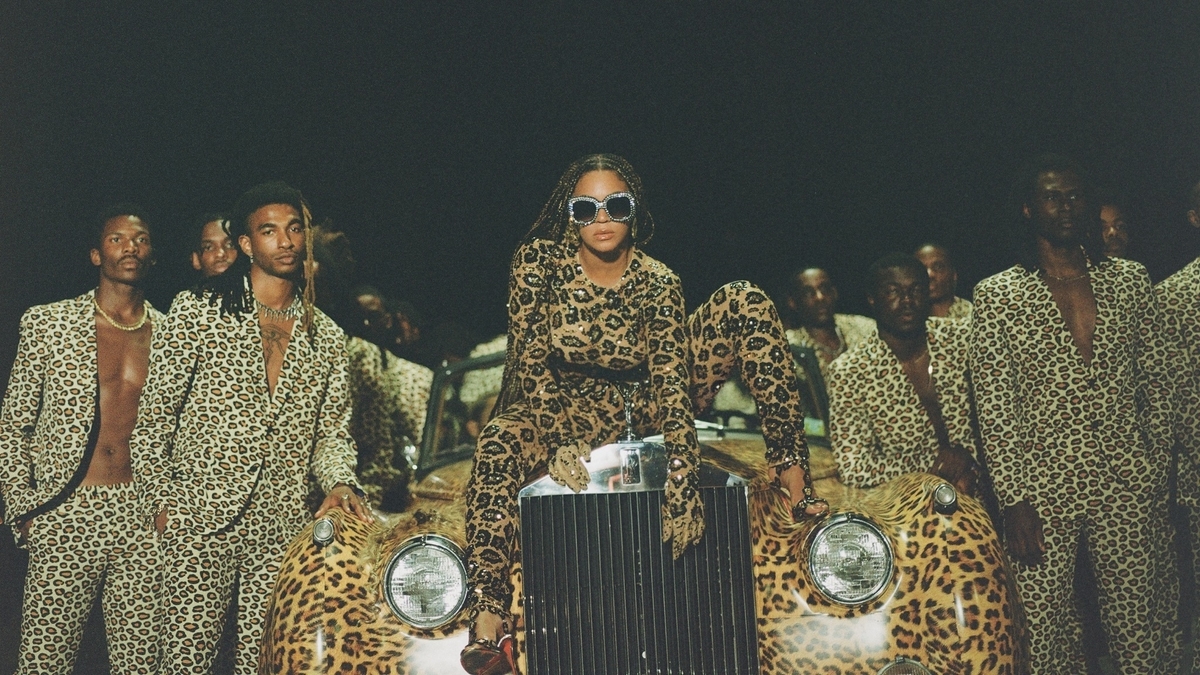When Beyoncé released her long-awaited visual album, Black Is King, it should come as no surprise that she received widespread acclaim for centering Blackness in a way some of us haven’t seen before. While some of her contemporary colleagues use Africa as a backdrop to fit their white gaze, as we’ve seen time and time again, Beyoncé curates her art at an entirely different level.
Using storytelling to convey that Black people should tap into our self-confidence because of the rich history that ascends our bloodlines is a message that should not be taken lightly. Aside from that, Beyoncé employed armies of Black designers, Black actors, and Black artists, paying homage to our ancestors with stunning cinematography through the lens of actual Black people — scene after scene.
All this to say, Black Is King was not a history lesson. The criticisms that Beyoncé is currently facing, for "romanticizing pre-colonial Africa" and not filling in the gaps that simple reading and research could fill, is simply not fair.
this is dazzled dreams come to life ???? pic.twitter.com/89dnfwudvD
— destiney bleu (@destineybleu) July 31, 2020
In no way is Beyoncé above criticism because she chooses to be unproblematic in the public eye. Criticism is not this big scary monster that many think it is, it can actually serve as a vehicle for us to transcend to a higher plateau if given and implemented constructively. There is, however, a distinct line between criticism and reaching. Most of the time, reaching is when someone takes something minuscule and expands it into something that it's not — usually beyond the scope of reality; and that’s just what’s happening with the notion that Beyoncé's spectacular art "dehumanizes our Africaness."
The beauty about self education is we have the ability to conduct our own research and develop our own opinions on any subject. For centuries, we’ve expected Black women to be the backbones of our community: mothers, wives, rehabilitation centers for unhinged men, and apparently historians, now. It’s not Beyoncé’s job to pick up the slack and make sure every single Black person on the face of this earth is properly educated on the realities of pre-colonial Africa.
The notion that she is supposed to take on the helm of leading an entire generation to educational bliss is a misguided fallacy that makes little to no sense. The question needs to be why are we relying on Beyoncé to educate us on subjects that could so easily turn into a Google search. Do not make Beyoncé responsible for your education gap.
People really expect from Beyoncé, a SINGER and ENTERTAINER, to end capitalism, racism, pandemic, hire every unemployed person in the world, end the world's hunger, basicaly solve every problem under the sun, but say that we, her fans, treat her as God.
Make it make sense. pic.twitter.com/mFl0XcmwXN
— Isla (@isIaflow) August 2, 2020
According to Tina Knowles-Lawson, Beyoncé's mother, the Grammy award-winning songstress created Black Is King after learning how the original composer of "The Lion Sleeps Tonight," a South African man named Solomon Linda, received no credit for his work. The irony of Beyoncé using Disney as a platform, given its racist roots with bigoted founder Walt Disney, to showcase the beauty and regality of Africa should not go unnoticed. Not only was this a brilliantly bold business move, but a statement that declares loud and clear Blackness is royalty and it’s with us wherever we go.
As Black people, we are innately gifted — of course it is unlikely that all of our ancestors were literal kings and queens but despite not having tangible crowns or jewels, they were indeed, royalty. Why? Because they were Black.
This is why no think piece against Beyoncé will EVER prosper. All those attempts to tear her down and she literally used her position & power in the industry to correct history. On the Disney platform at that! It’s crickets for a lot of ya’ll. I know you sick! https://t.co/I1mi0hRnl8
— JIGGAMAN. (@imtoomuchnigga) August 5, 2020
If 2020 has shown us anything, it’s that we live in a world where Black people are not valued. Sure, our contributions to the world are valuable, but we don’t get any credit regardless. Let’s look at Breonna Taylor for example who was murdered in her home while she was sleeping. The police officers who are responsible for this heinous act are still walking free. When we are met with the tragic realities of being Black, every single day, why is Beyoncé being scrutinized for attempting to expand our gaze and knowledge of the African ancestry that lies within us? Why is it so wrong for us to view ourselves as kings and queens in a world that tells us we are everything but?
Critique of any art is subjective and valid, but when it comes to honoring our ancestors and simultaneously encouraging us to channel the greatness that is embedded in our DNA, there should be no argument on the importance of that.
Also maybe listen to what Beyoncé has to say about what SHE intended with HER film. https://t.co/uGyfRjtn35
— Ms Party ????️???? (@Olwee) August 2, 2020
Would people have preferred for Beyoncé to say “Black Is Poor” or “Black Ain’t S**t?” Taking any and every opportunity to nitpick Black Is King will not change the fact that to be Black is to be great. Beyoncé never told us to romanticize pre-colonial Africa. Beyoncé never told us that she was taking it upon herself to lead our people to an educational revolution.
I left this film wanting to learn more about my ancestry and wanting to discover how I can never lose sight of the king within me or how the kings and queens before me continuously guide my steps. Is that a bad thing?
